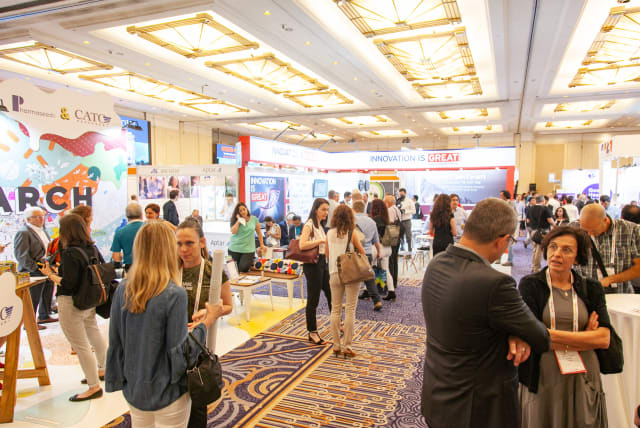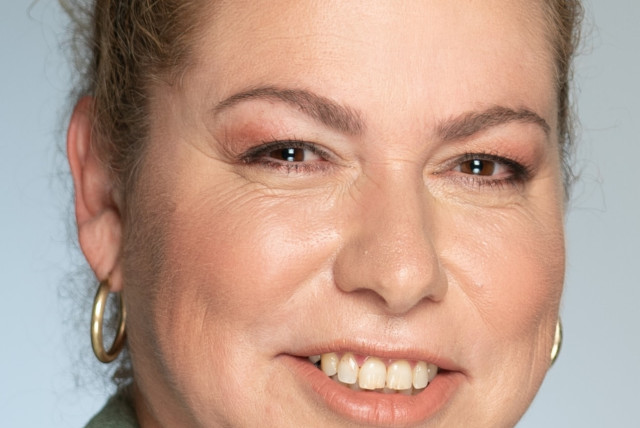Could 'Personalized Nutrition' be the next health-tech buzz?

“Personalized nutrition” is a field of technology based on multidisciplinary research which utilizes AI and machine learning to tailor unique nutrition recommendations.
“Good nutrition” ranks highly among the things in life that are probably important but that very few legitimately understand well enough to implement it into their lives. However, new developments in the health tech sector made possible by the recent boom in AI technology might be the answer to that problem.
“Personalized nutrition” is a field of technology based on multidisciplinary research which utilizes Artificial Intelligence and machine learning to tailor unique nutrition recommendations to specific users in order to promote and maintain their health and prevent diseases. It takes a variety of factors and the interactions between them into account, including genetics, microbiome, age, sex, metabolism, dietary habits, lifestyle, environmental exposure and physical activity; all of which serve to enable users to stay in ship shape and optimally nourished.
The international Life Science and HealthTech conference in Israel
Later this month an entire panel dedicated to the burgeoning sector is slated to take place during Biomed Israel, the premier international Life Science and HealthTech conference in Israel. Co-Chaired by Ruti Alon, founder and CEO of Medstrada; Ora Dar, PhD, senior expert in Medical Sciences and Health Innovation; and Nissim Darvish, MD, PhD, managing general partner at Eliraz Ventures, the conference will explore and aim to fuel the innovations and trends that are shaping the future of healthcare systems and life science.
The precision nutrition panel is to be led by Dr. Tammy Meiron, the Chief Technology Officer at Fresh Start, a global food-tech incubator looking to impact the future of food, beverage and nutrition.
“The phrase you are what you eat is commonly used in a conversation about health and the connection between food and body. Eating habits may affect our health by 300 to 400%, while genetics is considered to affect our health by 30 to 40%. So what we eat is extremely important,” she said. “Personalized nutrition is taking this idea one step further into personalization based on AI and machine learning capabilities for non-intuitive nutrition recommendations.”
Meiron explained that, while the personalized nutrition sector is still small, it has a lot of potential if it can gain the right traction.
“We are aiming to incept and support at least 40 startups to bring disruptive technologies to the food to the global food industry. Currently, we have 10 official and portfolio companies,” she said. “Within five to 10 years, we will make significant progress in this field, but we are now in the initiation phase of this new discipline. We have a lot of data that were collected in the past in nutritional studies, clinical studies — some of them were conducted according to relevant standards — but most of them were not. So there is a lot of work to be done to standardize the data, among other things.”
One company trying to pioneer within the field is myAir, a platform which uses generative AI to measure, monitor and relieve chronic stress by offering 24/7 nutritional support based on physiological and psychological indicators.
The co-founder and CEO of myAir, Rachel Yarcony, explained to the Jerusalem Post that much of the industry hinges on the use of artificial intelligence, which is indispensable in that it enables the digestion of massive amounts of data which can be used to generate recommendations.
“We live in the era of data, and we are lucky enough to use the most advanced technology that exists. That’s at the heart of our technology: the ability to process huge amounts of data. Both personalized data — because we use all the physiological and psychological data that the user gives us — and all the research in the world. So the ability to use generative AI, collaborative AI and all the most advanced options to give the highest-precision recommendations is so important,” she said.
One issue that companies offering personalized nutrition must face lies within the ever-burdensome field of regulations. One such company is ApoWiser, which started out as a simple chatbot that recommended over the counter drugs to online shoppers based on a brief discussion. Eventually, however, the company’s team wanted to move into the field of nutritional supplement recommendations.
“We noticed that vitamin and mineral supplements have been sort of ignored. People assume that because it's something that you buy off the shelf, they know what they need and can treat themselves right now — but we know that a lot of people don't have the adequate knowledge to deal with such decisions,” said Prof. Eyal Schwartzberg, Chief Scientific Officer & co-founder of ApoWiser.
According to Schwartzberg, the ApoWiser team encountered some difficulty in recommending supplements to users. In order to do so, they had to figure their way around regulations first.
“The problem is that from a regulatory point of view, it’s not allowed to give any indication regarding what supplements actually do to the body. You cannot say ‘vitamin B12 is used to treat problems in your nervous system’ or ‘chromium picolinate is used to treat diabetes’ — we cannot say that because there is not enough evidence for it, and the process of evaluating these products is not as thorough as with medicine,” he explained.
“So we devised this ‘counseling’ system, whereby you can input your age, your gender, your lifestyle: if you're vegan, if you're pregnant, if you’re under stress. Things that we have an evidential basis to show that it might affect your vitamin and mineral levels and it might cause deficiency. Then we ask about certain medical conditions, and then we move into medications that you're taking, and at the end you get a list of possible deficiencies, whereby the user can look at and see why we recommend certain supplements to them,” he said.
The 21st Biomed Israel, the premier international Life Science and HealthTech conference in Israel, will take place on May 16-18, 2023, at the David InterContinental Hotel in Tel Aviv.
Jerusalem Post Store
`; document.getElementById("linkPremium").innerHTML = cont; var divWithLink = document.getElementById("premium-link"); if (divWithLink !== null && divWithLink !== 'undefined') { divWithLink.style.border = "solid 1px #cb0f3e"; divWithLink.style.textAlign = "center"; divWithLink.style.marginBottom = "15px"; divWithLink.style.marginTop = "15px"; divWithLink.style.width = "100%"; divWithLink.style.backgroundColor = "#122952"; divWithLink.style.color = "#ffffff"; divWithLink.style.lineHeight = "1.5"; } } (function (v, i) { });


